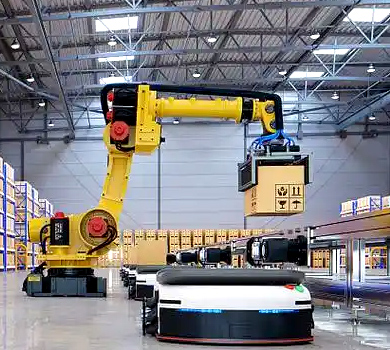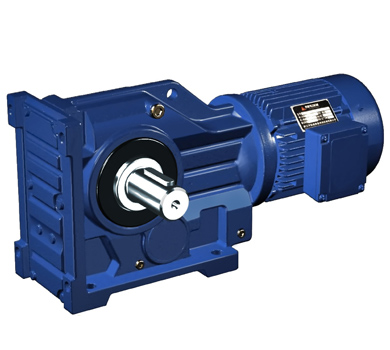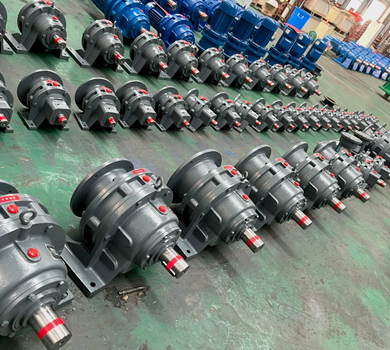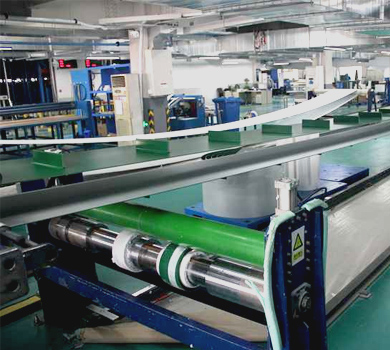Industry Challenges and Pain Points Analysis
The injection molding automation industry has been evolving rapidly to meet the demand for higher production efficiency and product consistency. One of the key components in this field is the rotating gripper module, which is used to extract molded parts from the mold cavity with high precision and speed. These modules typically consist of a servo motor, a gear reducer, gripper jaws, and a control system. Current trends include the integration of higher speed, multi-axis coordination, and operation in controlled environments such as cleanrooms and high-temperature zones.
However, the industry faces several challenges, particularly in the motion control and transmission systems:
- High torque density is required for rapid and synchronized part removal operations.
- Transmission accuracy must be consistent to avoid misalignment and part damage during high-speed cycles.
- Compact and modular designs are essential to integrate the module into existing robotic cells without major layout changes.
- High energy efficiency is needed to reduce operational costs and meet green manufacturing standards.
- Long service life and low maintenance frequency are crucial for high uptime and minimal production interruption.
- Compatibility with a wide range of input flanges and integration with automation control systems is a growing requirement.
The Key Role and Technical Requirements of Gear Reducers in This Industry
Gear reducers are fundamental to the performance of rotating gripper modules. The core requirements include:
- High torque density: To handle high inertial loads and rapid movements during the part extraction process.
- High transmission precision: To ensure accurate positioning and prevent any deviation that could compromise part quality or tooling wear.
- Fast response speed: Essential for maintaining cycle times and synchronizing with other robotic elements in the system.
- System compatibility: Must interface with various motor and control configurations to support flexible automation setups.
Additionally, environmental adaptability is a hidden yet critical factor. The gear reducer must operate reliably in high-temperature conditions and maintain performance in cleanroom environments, where contamination can significantly affect motion accuracy and system lifespan. High IP protection levels and resistance to moisture and dust are also essential.
Waimica's Mechanical Stepless Transmission Gear Reducer Solution
Waimica has developed a mechanical stepless transmission gear reducer specifically tailored for rotating gripper modules in injection molding automation. Our solution directly addresses the following industry challenges:
- High Torque Density: Utilizing a compact, high-efficiency design, our gear reducers deliver excellent torque performance in a small footprint, ideal for integration into tight automation spaces.
- High Precision and Repeatability: Designed with minimal backlash and high torsional stiffness, our products provide consistent motion control with ±0.05° accuracy, ensuring precision in high-speed part extraction.
- Modular and Flexible Installation: The reducer features a modular architecture and supports multiple input flange configurations, allowing seamless integration with a variety of servo motors and control systems.
- Environmental Adaptability: Our reducers are rated up to IP67 and can function in high-temperature environments up to 80°C, making them suitable for both standard and cleanroom manufacturing environments.
| Parameter | Waimica | Leading Brand A | Leading Brand B |
|---|---|---|---|
| Torque Range (N.m) | 50–300 | 60–350 | 50–400 |
| Transmission Accuracy (°) | ±0.05 | ±0.03 | ±0.04 |
| Efficiency (%) | 90–95 | 88–93 | 92–96 |
| Input Flange Compatibility | Multiple (ISO 9409, NEMA, DIN 5480) | Limited to proprietary configurations | Wide range but with high cost |
| Operating Temperature (°C) | -10 to 80 | -5 to 70 | -10 to 75 |
| IP Rating | IP67 | IP66 | IP67 |
Typical Application Scenario and Customer Feedback
A North American automotive parts manufacturer required a high-precision and high-reliability rotating gripper module for an automated injection molding line producing complex interior components. The system was expected to run 24/7 with minimal maintenance, while ensuring consistent quality in each production cycle.
Waimica's engineering team conducted a detailed site survey, assessed the operational environment (high temperature and moderate humidity), and selected a customized mechanical stepless transmission gear reducer model that met all technical and environmental requirements. Our team also provided on-site installation support and coordinated with the customer’s control system integrator to ensure smooth integration.
After implementation, the customer reported significant improvements:
| Performance Indicator | Before Waimica | After Waimica |
|---|---|---|
| Module Downtime (hours/week) | 4.2 | 0.8 |
| Part Rejection Rate (%) | 0.7 | 0.1 |
| Maintenance Cycle (months) | 6 | 18 |
| Energy Consumption per Cycle (kWh) | 0.15 | 0.12 |
The customer noted that the Waimica reducer not only matched the performance of the international alternatives but also provided a more cost-effective solution with faster delivery times and better support during the implementation phase.
Conclusion and Waimica Brand Value Summary
Waimica’s mechanical stepless transmission gear reducer has proven to be a robust and reliable solution for injection molding automation systems. Our products combine high torque density, exceptional precision, and modular design to meet the evolving demands of modern automation.
- Technical Advantages: ±0.05° transmission accuracy, IP67 rating, and compatibility with ISO 9409, NEMA, and DIN 5480 flanges ensure high adaptability and performance.
- Delivery and Customization: Waimica’s global supply chain and in-house R&D allow for rapid prototyping and tailored solutions to meet specific customer requirements.
- Cost-Effectiveness: We offer a high-performance, high-reliability alternative to leading international brands at a significantly lower cost without compromising on quality or service.
With the increasing trend toward smart manufacturing and Industry 4.0 integration, Waimica is committed to delivering scalable, future-ready motion control solutions. Our strong track record in this application confirms our ability to support the next phase of automation in the injection molding industry, positioning Waimica as a trusted partner for long-term system upgrades and performance enhancements.







